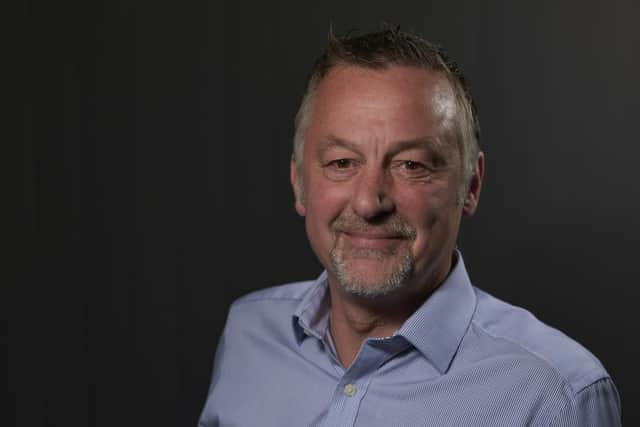Plastic packaging is still the future, we just need a circular economy - Nigel Coates
Since 2019, we’ve seen Covid wreak havoc around the world leading to a staggering response from the scientific community that led to the development and rollout of numerous vaccines in less than a year.
In contrast, the plastic pollution crisis has seen big brand name after big brand name commit to a single use plastic free future but do nothing constructive to actually resolve the issue of plastic waste or come up with an alternative packaging material.
Advertisement
Hide AdAdvertisement
Hide AdThis corporate greenwashing has been a huge PR success for its practitioners.


And it's not just the big brands that have been more bothered about being seen to do something than actually doing something worthwhile. The Government’s soon to be introduced UK Packaging Tax has been trumpeted as the big step needed to reduce plastic pollution but look closely and it’s clear it’ll deliver nothing.
Under its new rules to avoid a tax levy, plastic packaging trays can only be manufactured in this country using material with a minimum of 30 per cent recycled content. What it fails entirely to take into account is that the vast majority already are (and have been for years) and most aren’t recycled because recycling them isn’t commercially viable.
The only plastic item in every day use that’s guaranteed to be recycled is the plastic drinks bottle. All plastic drinks bottles are manufactured from a material called PET, which means when they enter the waste-stream they can be picked out safe in the knowledge that the material they are made from can be recycled and sold as washed bottle flake to bottle manufacturers for use in making new plastic bottles as well as for extrusion into sheet for the production of plastic packaging.
Advertisement
Hide AdAdvertisement
Hide AdReplicating this closed loop, bottle-to-bottle economy across all items of plastic packaging has to be the ultimate goal in the battle against plastic pollution. To do this, a standard, recyclable material has to be used across all packaging, and PET with its high recycled content has to be the material of use.
This simple step would remove any doubt from waste companies minds about the material they are dealing with and ensure sheet extrusion companies would look to them to buy raw, recycled material from which to make new material. As a result, a circular packaging economy would be created utilising the most suitable and sustainable material for the job – plastic.
Yes, I am saying that plastic is fantastic and the arguments for its continued use clearly demonstrate this.
Let’s remember the plastic waste found floating in our seas and clogging up our rivers didn’t walk there itself. It’s there because we put it there. Therefore, it’s human behaviour that needs to change as opposed to our choice of packaging material.
What also needs to be considered is that the alternatives simply don’t stack up.
Nigel Coates is the managing director of LVF Packaging.